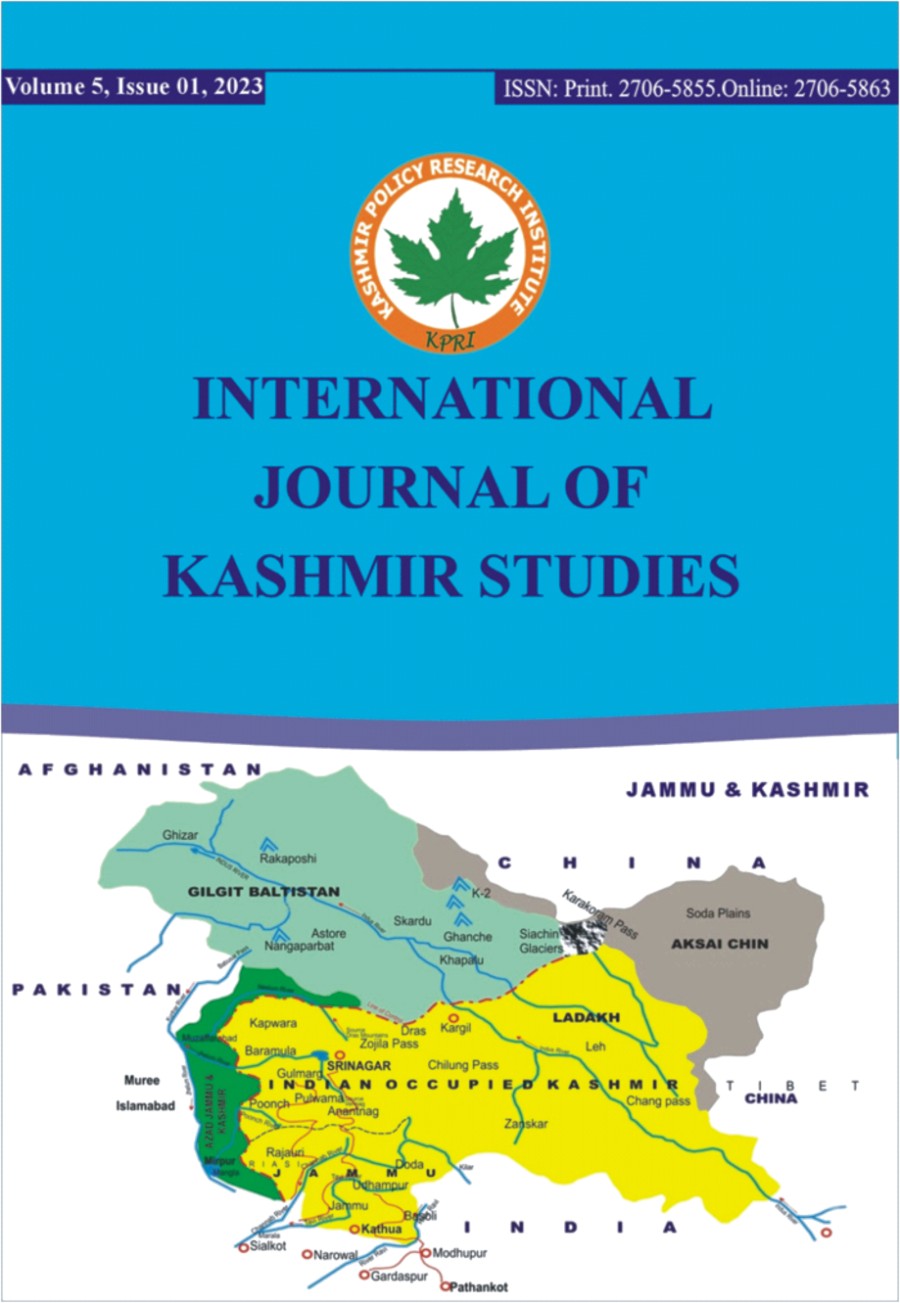From Territorial Dispute to Nuclear Concerns: The Case of Jammu and Kashmir in South Asia
Keywords:
Kashmir, Nuclear, South Asia, Pakistan, India, UNAbstract
Security in South Asia is deeply influenced by the relations and actions of states, particularly in the case of India and Pakistan regarding the strategic role of Kashmir. The nuclearization of the region has significantly impacted their security dynamics, raising concerns for the international community. India's dominance in the South Asian security matrix has led to a perpetual action-reaction cycle in Pakistan's national security approach. This has resulted in a stability-instability paradox, escalating competition and nuclear posturing beyond conventional thresholds. The primary bone of contention is Pakistan's perception of India's destabilizing intentions due to its illegal occupation of Jammu and Kashmir. These concerns date back to the Cold War era, characterized by mutual containment policies. While Pakistan's foreign policy aimed to safeguard territorial integrity and deter Indian aggression, it also sought to address conventional asymmetry and establish nuclear parity. Jammu and Kashmir not only played a crucial role in Pakistan's territorial integrity but also held religious significance in the country's ideology. This paper aims to contextualize the pretext of Indian occupation of Jammu and Kashmir within South Asia's nuclear framework, contributing to a comprehensive understanding of the region's security environment and prospects for peace and stability. The study adopts a deductive approach and relies on secondary data sources for an objective analysis of the subject matter.

Downloads
Published
How to Cite
Issue
Section
License
Copyright (c) 2023 Mujahid Hussain, Hussain

This work is licensed under a Creative Commons Attribution 4.0 International License.


